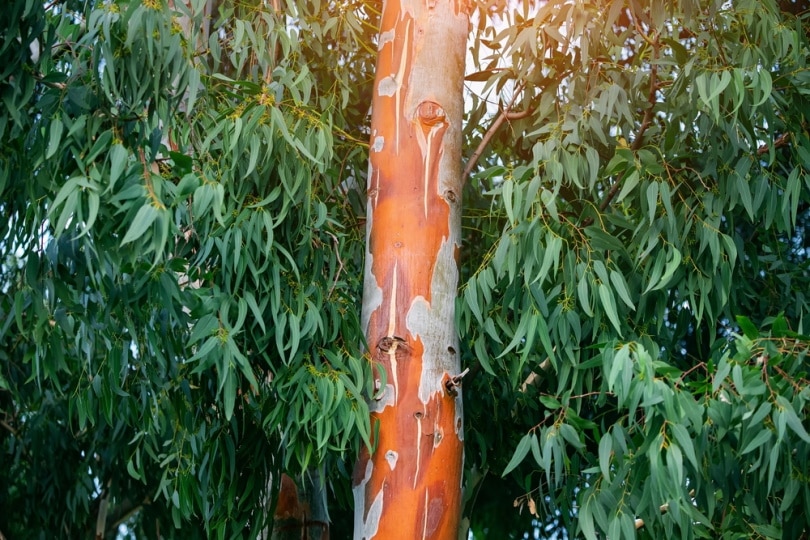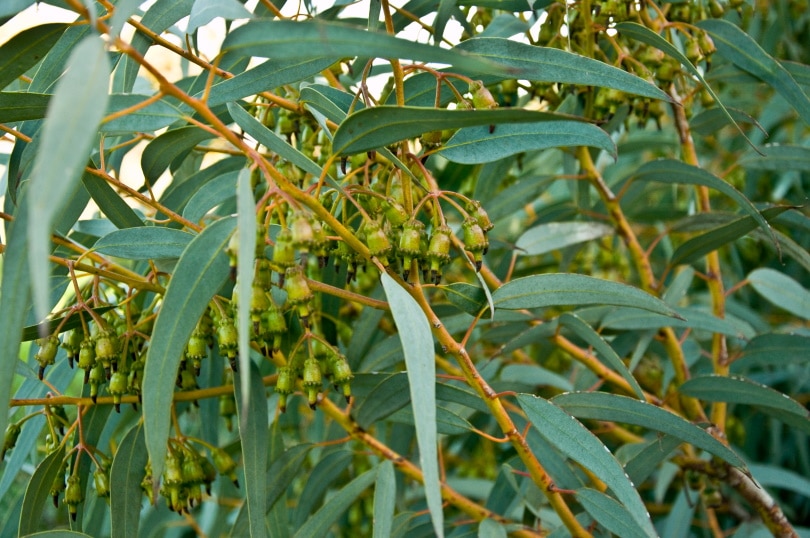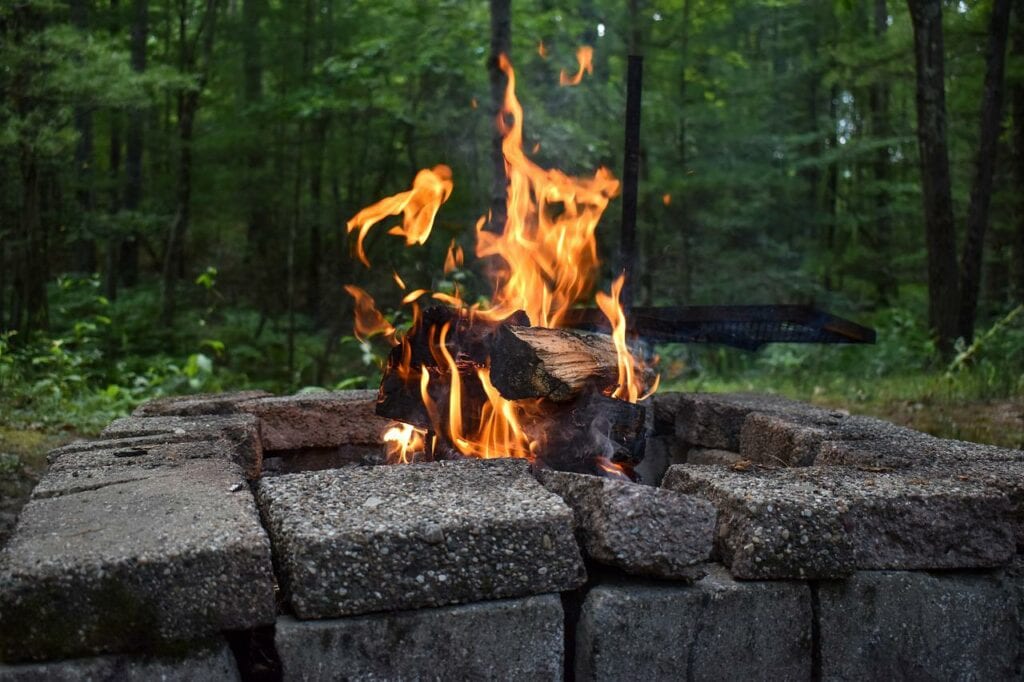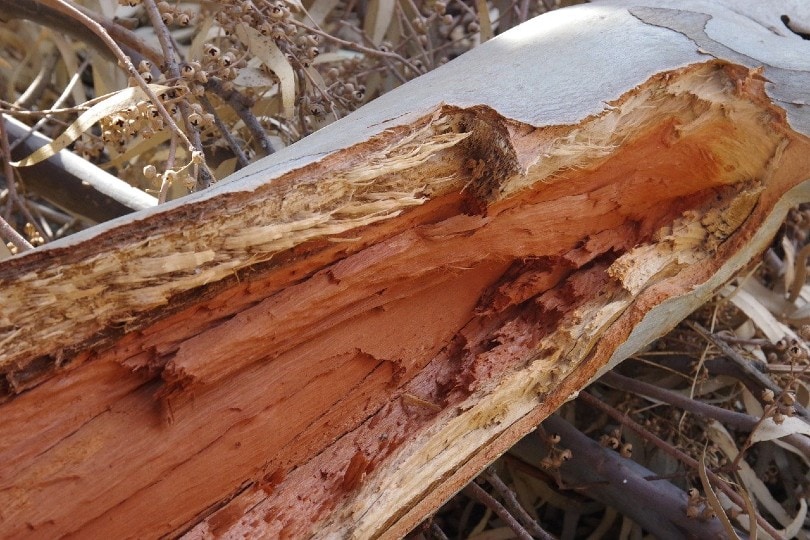Can You Burn Eucalyptus Leaves or Wood? Pros, Cons & FAQ
-
Ed Malaker
- Last updated:

Eucalyptus has a pleasant fragrance when it’s burned, which causes many people to wonder if they can use it as firewood. The short answer is yes. Eucalyptus can be a great choice for firewood if you like the smell, and it also burns hot. That said, there are a few things to consider before you start to use it regularly, so keep reading as we take a closer look at this exotic wood to learn the pros and cons of using it as firewood.
Pros and Cons of Using Eucalyptus
Eucalyptus is a great wood for the fireplace because it doesn’t create much smoke and will burn for a long time at a high temperature. In fact, it’s so hot that many people recommend putting a heat shield in front of the fireplace to help make it more tolerable. However, when the fire burns out, you won’t find much ash left behind, so it makes for easy clean-up. It also produces the pleasant scent of eucalyptus that many people enjoy, though some describe it as medicinal.
The downside of using eucalyptus wood is that due to its extreme density, it can be extremely difficult to split into firewood if you don’t purchase it precut. It also has a long seasoning time because it is so dense and difficult to dry out, which can often lead to a higher purchase price. Another factor adding to its high cost is that eucalyptus is quite rare because it isn’t native to the United States. Also, even though burning eucalyptus only produces a small amount of smoke, it’s still bad for the environment and will release harmful carbon into the atmosphere.

- Low smoke
- Low ash
- High heat
- Pleasant fragrance
- Difficult to split
- Long seasoning time
- Expensive
- Bad for the environment
Is Burning Eucalyptus Poisonous?
Burning eucalyptus does not produce toxic gases, so it is safe to burn in your home. However, some people might not enjoy the fragrance that it creates. Also, fresh-cut eucalyptus is toxic to dogs, cats, and horses. Since it is so hard to dry out, the wood retains many of the oils, which is what makes it so fragrant. But these essential oils can cause liver damage and other health problems for your pets, so you must store the wood well out of reach and consider other options for burning, since the fragrance might also bother them.

Is Burning Eucalyptus Bad for the Chimney?
Eucalyptus is a great choice if you want to achieve high temperatures, but even though it doesn’t create much smoke, the oils in the wood can cause a buildup of creosote, a black carbon-based substance that can build up on the chimney’s walls. This can reduce airflow, which can increase the amount of creosote that an open flame creates. It’s also flammable and can increase the chances of a chimney fire.
Can I Use Eucalyptus for Cooking and Smoking?
Eucalyptus is not a good choice for cooking or smoking. The high-temperature flame is hard to use when grilling, and the oils will get onto the food. Eucalyptus oils are toxic, and ingesting them can lead to several serious health issues. Another downside to cooking with eucalyptus is that it tends to pop and spark as it burns, making it difficult to tend to the food.

What Are the Symptoms of Eucalyptus Poisoning?
Eucalyptus oil is toxic to consume, and even a small amount can lead to several health issues, including dizziness, muscle weakness, small pupils, stomach pain, and difficulty breathing.
Can You Burn Eucalyptus Leaves?
Yes. The leaves of the eucalyptus tree are safe to burn, and many people use them as incense. It’s also popular in aromatherapy and herbal remedies. Many people even smoke them, hoping to receive medicinal benefits. However, there is not much research supporting these claims, and we highly recommend talking with your physician before smoking the leaves. The leaves do contain less-toxic essential oils, and you can find them in small amounts as ingredients for several dishes.

Conclusion
Eucalyptus wood and leaves are safe to burn, producing a hot flame and a nice fragrance. It’s a great choice for campfires, especially in cold weather, and the leaves have many uses, from ingredients in recipes to incense in aromatherapy. However, the excess oils in the wood can produce creosote, which can build up in the chimney and possibly start a fire. The wood also tends to spark and pop, making it a poor choice for cooking, and grilling can also expose the food to toxic essential oils. The oils are also dangerous to pets, so you must store the wood out of reach if you decide to use it in your home.
Featured Image Credit: frantic00, Shutterstock
Contents
